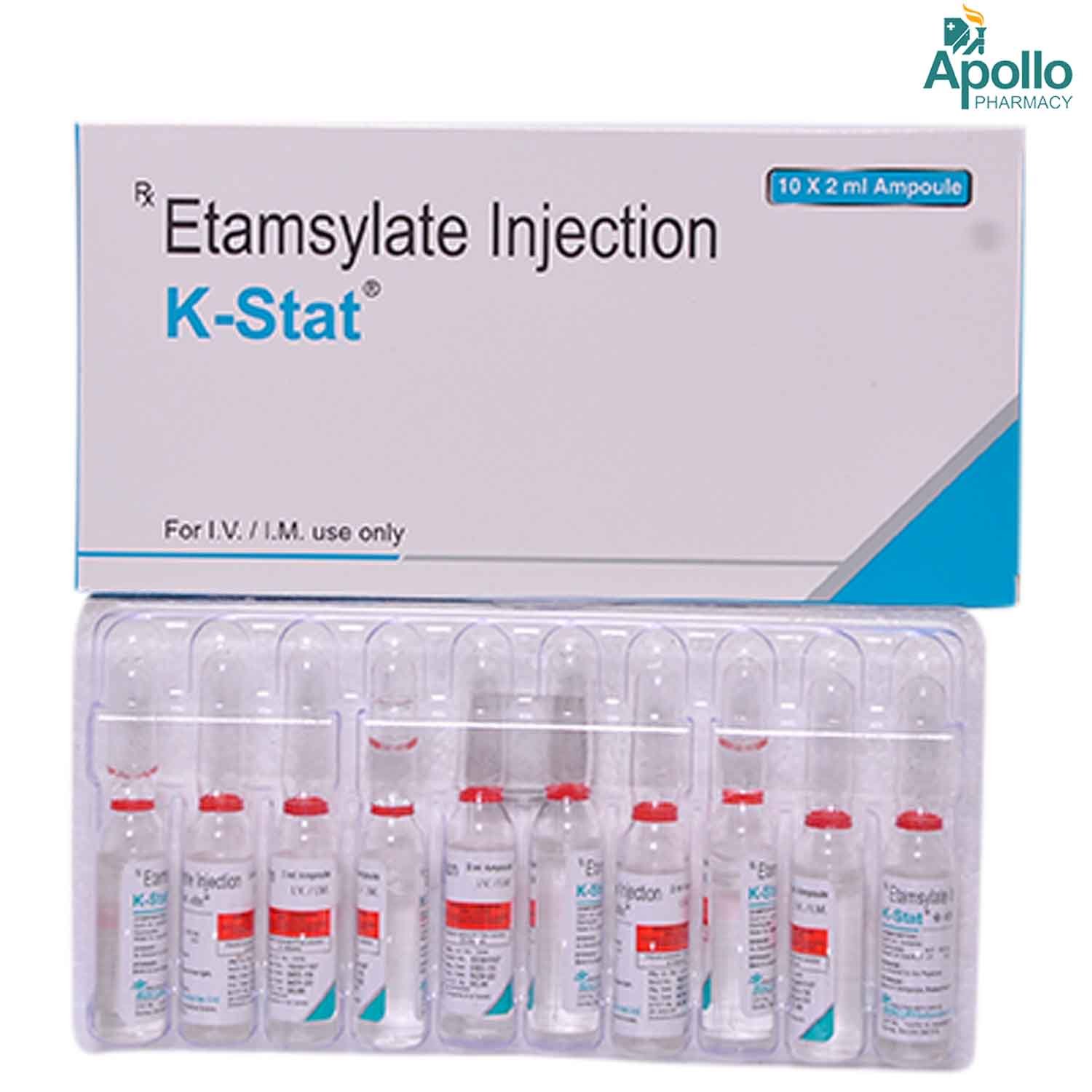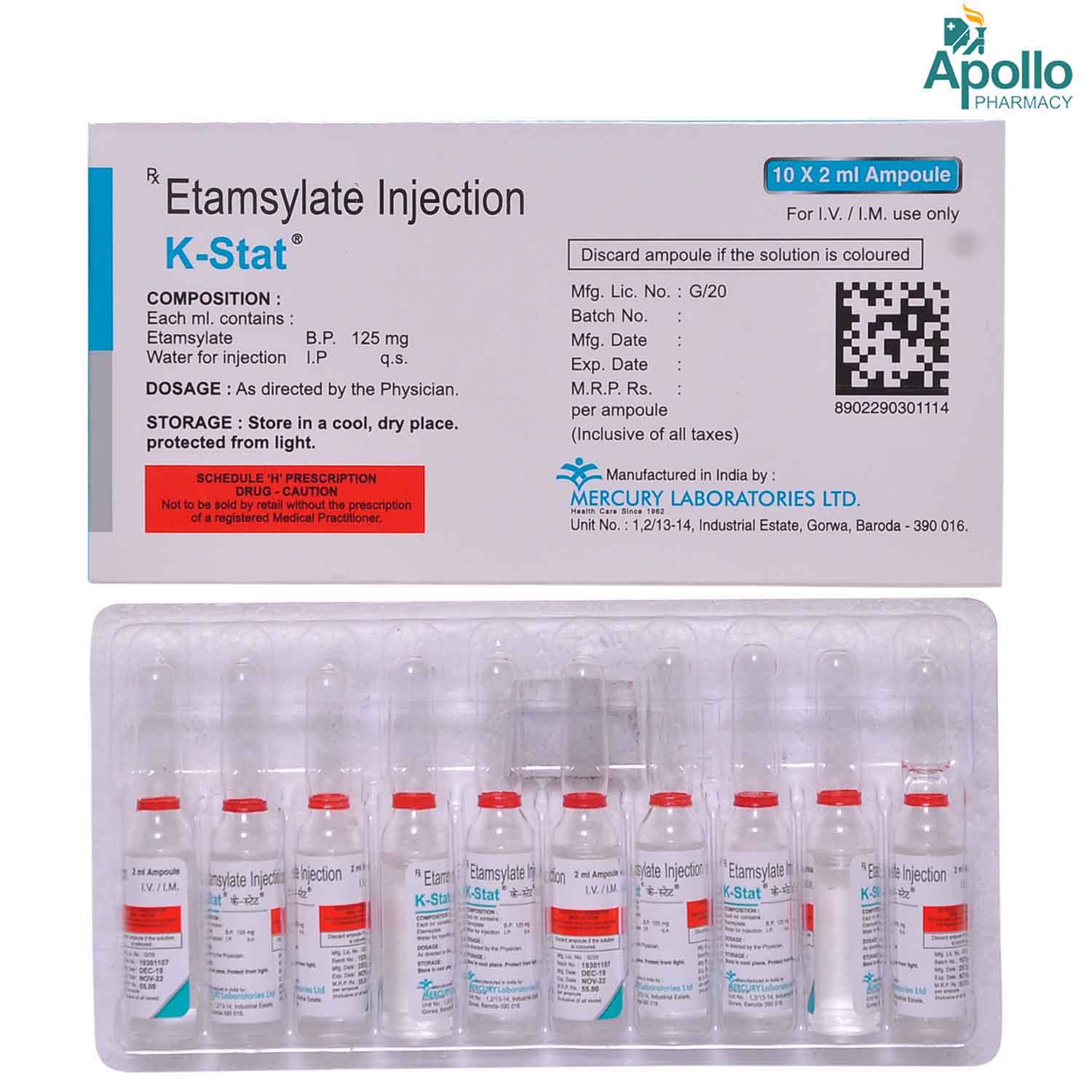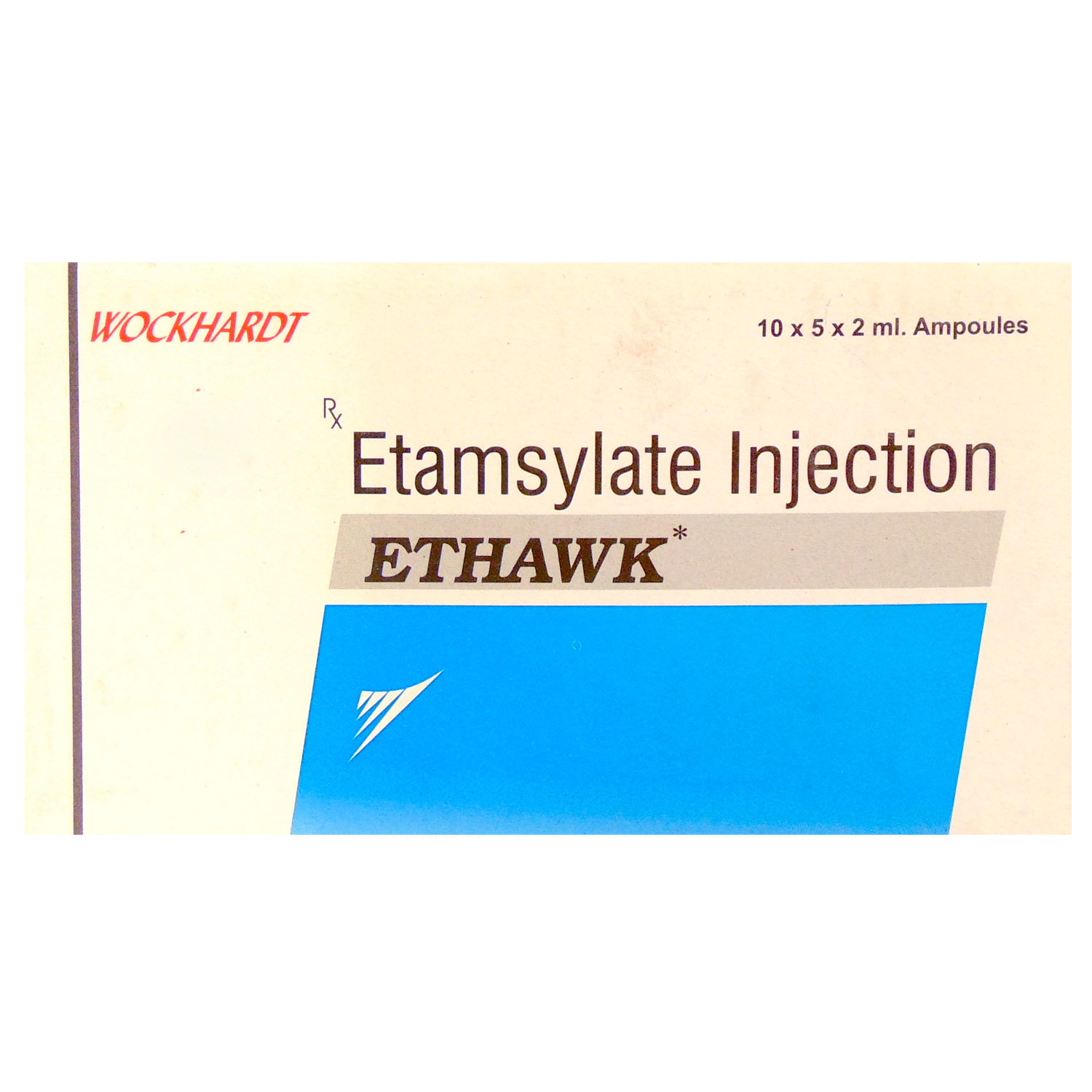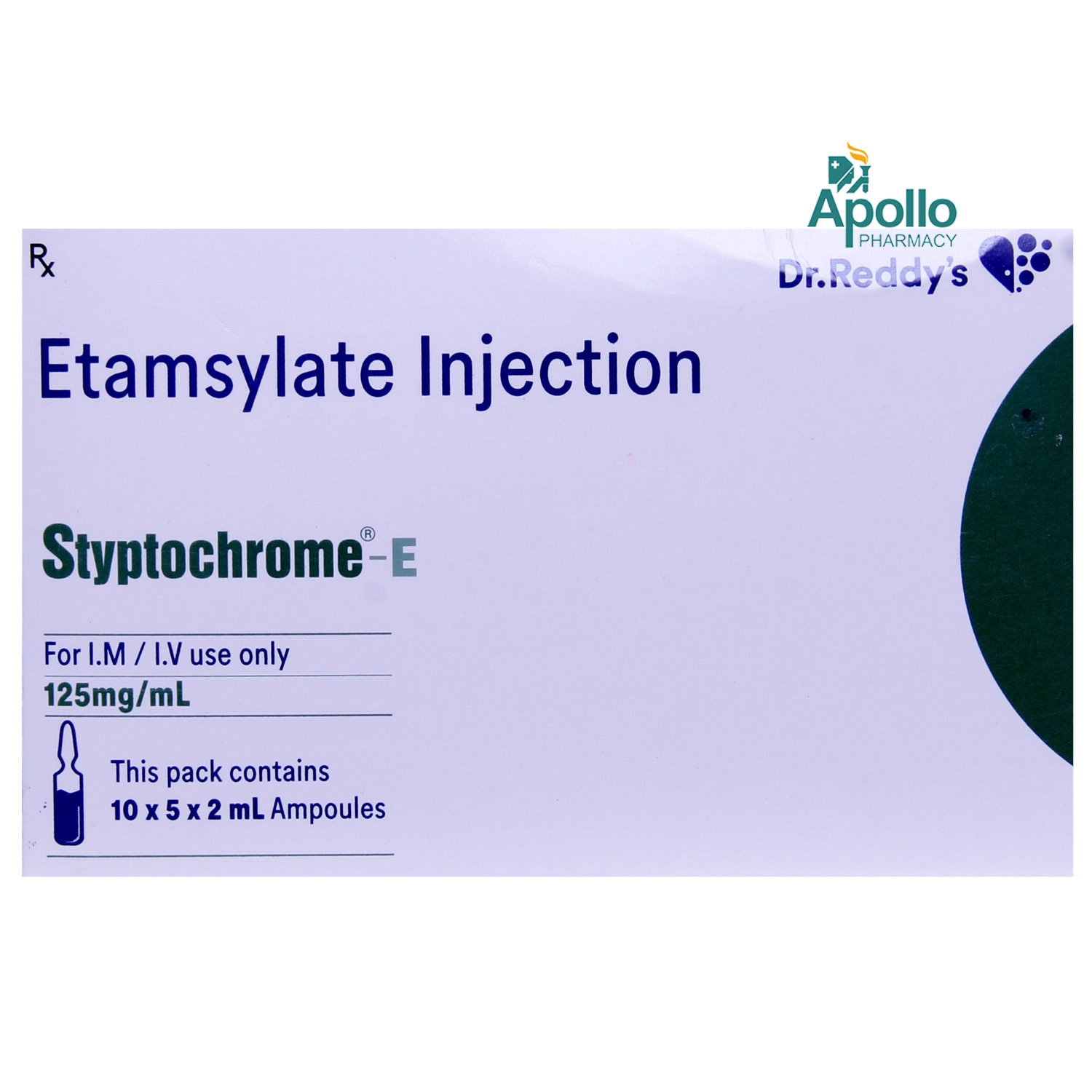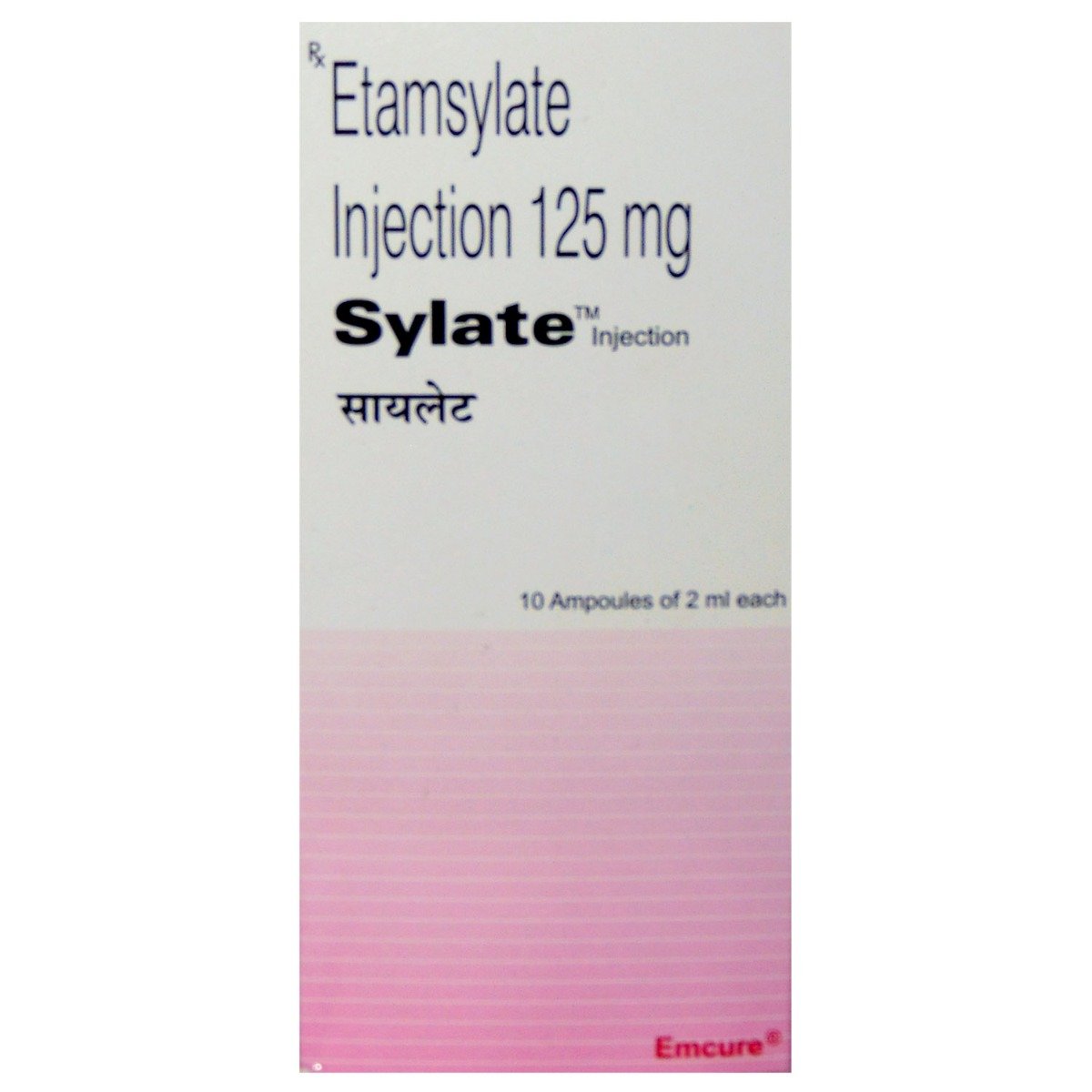K-Stat Injection 2 ml
MRP ₹58
(Inclusive of all Taxes)
₹8.7 Cashback (15%)
Provide Delivery Location
Online payment accepted
 Prescription drug
Prescription drugWhats That
Composition :
Manufacturer/Marketer :
Consume Type :
Expires on or after :
Return Policy :
About K-Stat Injection 2 ml
K-Stat Injection 2 ml belongs to the class of antihemorrhagic drugs. It is used to treat, control, and prevent a wide range of disease conditions and symptoms such as blood in urine, abnormal womb bleeding, excessive blood loss during menstruation in women, post-abortion bleeding, postpartum bleeding, blood vomiting, upper gastrointestinal bleeding, and blood-stained mucus.
K-Stat Injection 2 ml contains Etamsylate, a hemostatic agent that improves platelet adhesion by restoring capillary resistance and improving platelet adhesion. Thus, it helps to decrease abnormal bleeding.
It will be administered by a healthcare professional; do not self-administer. K-Stat Injection 2 ml may cause side effects such as headache, allergic rejection, nausea, skin rash, vomiting and fever. These side effects are short and may go away with time; however, if they continue, consult your doctor.
Before prescribing K-Stat Injection 2 ml, let your doctor know if you are allergic to any medications and foods, if you have acute porphyria, fever, non-cancerous growths or blood pigment disorder, or if you are pregnant or breastfeeding. K-Stat Injection 2 ml is not recommended for use before the onset of bleeding during periods. And also, notify your doctor about your current list of medications, pre-existing diseases, and current health conditions (e.g. pregnancy, upcoming surgery, etc.) in order to rule out any potential side effects.
Uses of K-Stat Injection 2 ml
Directions for Use
Key Benefits
K-Stat Injection 2 ml contains Etamsylate, a hemostatic agent that improves platelet adhesion by restoring capillary resistance and improving platelet adhesion. These effects help to decrease abnormal bleeding. Thus it treats, controls, and improves various disease conditions and symptoms, including blood in urine, abnormal bleeding from the womb, excessive blood loss during periods in women, post-abortion bleeding, postpartum bleeding, vomiting of blood, upper gastrointestinal bleeding and blood-stained mucus.
Storage
- Inform your doctor about the nausea and discuss possible alternatives to the medication or adjustments to the dosage.
- Divide your daily food intake into smaller, more frequent meals to reduce nausea.
- Opt for bland, easily digestible foods like crackers, toast, plain rice, bananas, and applesauce.
- Avoid certain foods that can trigger nausea, such as fatty, greasy, spicy, and smelly foods.
- Drink plenty of fluids, such as water, clear broth, or electrolyte-rich beverages like coconut water or sports drinks.
- Use ginger (tea, ale, or candies) to help relieve nausea.
- Get adequate rest and also avoid strenuous activities that can worsen nausea.
- Talk to your doctor about taking anti-nausea medication if your nausea is severe.
- Record when your nausea occurs, what triggers it, and what provides relief to help you identify patterns and manage your symptoms more effectively.
Drug Warnings
Before prescribing the K-Stat Injection 2 ml, let your doctor know if you are allergic to any medications and foods, if you have acute porphyria, bronchial asthma, fever, non-cancerous growths or blood pigment disorder, or if you are pregnant or breastfeeding. K-Stat Injection 2 ml is recommended not to use before the onset of bleeding during periods, so inform your doctor about your condition. And also, inform your doctor about your current list of medications (including vitamins and supplements), pre-existing diseases, and current health conditions (e.g. pregnancy, upcoming surgery, etc.) in order to rule out any potential negative effects.
Drug-Drug Interactions
Drug-Drug Interactions
Login/Sign Up
Drug-Food Interactions
Drug-Food Interactions
Login/Sign Up
Diet & Lifestyle Advise
- Maintain a healthy weight. Stay physically active.
- Consume fresh fruits and vegetables. Avoid spicy, salty, and deep-fried foods. Eating healthy can help you to recover faster.
- Avoid tea, coffee, and cold drinks.
- Drink plenty of fluids to stay hydrated. Fluids are necessary to maintain blood flow in your body.
- Avoid the intake of alcoholic beverages as it can make you dehydrated and also can affect your sleep.
- Avoid physical and psychological stress.
- Relax in a hot bath, use a heating pad, or take herbal teas to reduce stomach cramps. Massage therapy can also help to reduce cramps.
Side Effects of K-Stat Injection 2 ml
- Headache
- Allergic rejection
- Nausea
- Skin rash
- Vomiting
- Fever
Habit Forming
Therapeutic Class
All Substitutes & Brand Comparisons
RX
Out of StockETHAWK INJECTION 2ML
Merind Ltd
₹25.2
(₹11.34/ 1ml)
56% CHEAPERRX
Out of StockSTYPTOCHROME E INJECTION 1ML
Dr Reddy's Laboratories Ltd
₹23
(₹20.7/ 1ml)
20% CHEAPERRX
Out of StockEtamseen Injection 2 ml
Care Formulations Lab
₹51.45
(₹25.73/ 1ml)
1% CHEAPER
Author Details
We provide you with authentic, trustworthy and relevant information
Drug-Diseases Interactions
Drug-Diseases Interactions
Login/Sign Up
FAQs
Disease/Condition Glossary
Bleeding disorders: Bleeding disorders are a group of diseases that occur when blood clots improperly. During normal clotting, platelets, a type of blood cell, adhere together and form a plug at the site of an injured blood vessel. Clotting factors, which are proteins found in the blood, then interact to form a fibrin clot, which is essentially a gel plug that holds platelets in place and allows healing to take place at the site of the injury while preventing blood from escaping the blood vessel. While excessive clotting can lead to conditions like heart attacks and strokes, the inability to form clots can be just as dangerous, leading to excessive bleeding. Bleeding can occur as a result of insufficient or abnormal platelets, insufficient or abnormal clotting proteins, or abnormal blood vessels.

Have a query?
Alcohol
Safe if prescribed
It is unknown whether it is safe to consume alcohol with K-Stat Injection 2 ml. However, as a precautionary measure, it is advisable not to take or limit alcohol while on treatment with this medicine.
Pregnancy
Consult your doctor
Inform your doctor if you are pregnant or suspect pregnancy. Your doctor will weigh the benefits and potential risks before prescribing K-Stat Injection 2 ml.
Breast Feeding
Consult your doctor
Inform your doctor if you are a nursing mother. Your doctor will weigh the benefits and potential risks before prescribing K-Stat Injection 2 ml.
Driving
Safe if prescribed
K-Stat Injection 2 ml has no or negligible influence on the ability to drive and operate machines.
Liver
Consult your doctor
If you have or history or evidence of liver disease, please inform the doctor before receiving K-Stat Injection 2 ml. Your doctor may adjust the dose based on your condition.
Kidney
Consult your doctor
If you have or history or evidence of kidney disease, please inform the doctor before receiving K-Stat Injection 2 ml. Your doctor may adjust the dose based on your condition.
Children
Safe if prescribed
K-Stat Injection 2 ml is not recommended for use in children.

